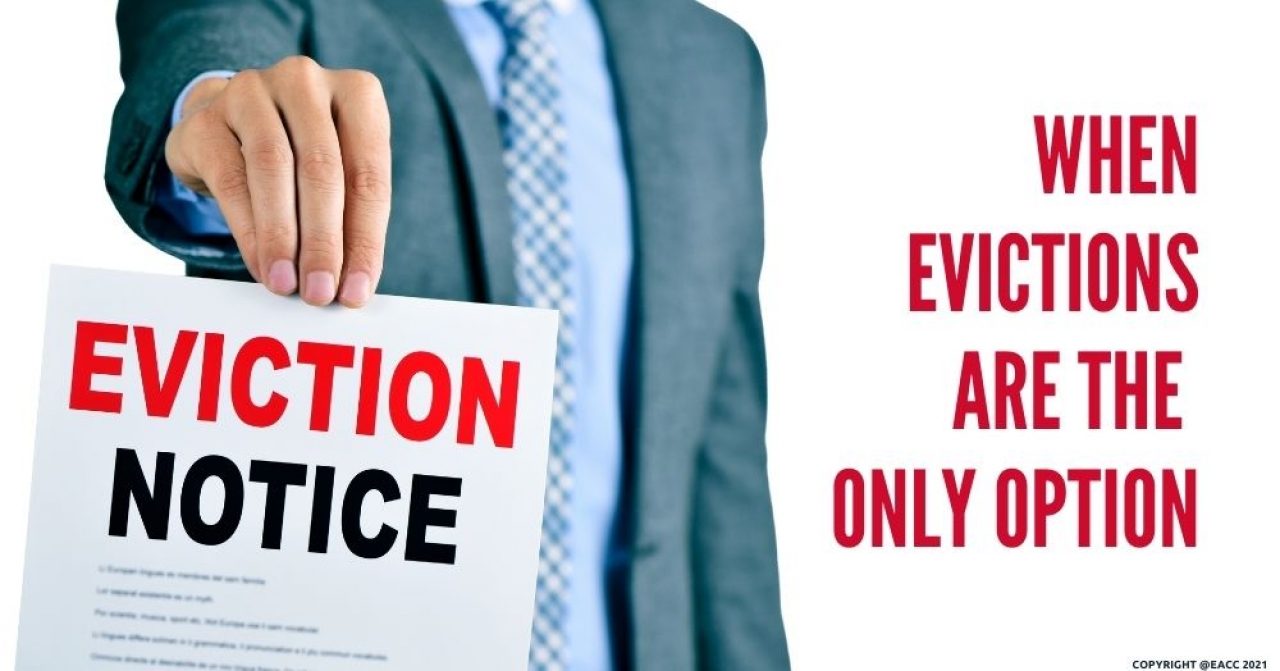This three-minute read explores the reasons why evictions happen and how they are carried out.
Landlords do not want to evict tenants. Its costly, risky and getting to the stage where you have to evict your tenants is difficult for everyone involved and should always be considered as a last resort. However, it might be deemed necessary when:
- The tenant isn’t paying the rent
- The tenant has abandoned the property
- The tenant has broken a term of the tenancy
Due to the pandemic, the rules have changed on notice periods and when you can start eviction proceedings. These rules are in a state of flux right now as the effects of the pandemic change. There are different rules for Wales and England and minimum notice periods are changing.
Also, different tenancy types have different rules as to the process.
There is a very specific process you must follow in order to carry out an eviction. If you don’t, you can be found guilty of harassing or even illegally evicting the tenants.
In England and Wales, if your tenants have an assured shorthold tenancy, the following steps are necessary.
- First, you have to issue a Section 21 notice if you want the property back after a fixed term ends or if the tenancy is periodic. If the terms of the tenancy have been broken, you might issue a Section 8 notice but there are differences in process between a Section 8 and Section 21. With a Section 21 you dont give a reason for eviction and usually there's no court hearing. Assuming everything is in order you'll get a possession order, but if there are rent arrears you wont get an order for payment and you'll need to pursue those seperately. With a Section 8 you must use one (or more) of the prescribed grounds and attend a court hearing where a judge will make a decision on whether to grant a possession or not order based on the evidence. Not all section 8 grounds are guaranteed, some are discretionary and its up to the judge to decide. If there are rent arrears you can ask the judge to grant an order for payment of the arrears.
- After the correct paperwork has been issued, you can apply to the court for a standard possession order. This is only appropriate if your tenants haven’t left by the specified date on the notice and they owe you rent. If you’re not claiming for unpaid rent, you can apply instead for an accelerated possession order.
- If the tenants still won’t leave, you can apply for a warrant for possession. This allows bailiffs to get involved to remove the tenants from the property.
If you are owed rent but the tenant claims Universal Credit or Housing Benefit, you may not have to evict them. Instead, you can speak to DWP or the local council, respectively, to have the rent paid directly to you. This is called ‘managed payments’.
It can be easy to get one or more steps wrong throughout these processes. It’s very important that you seek the correct legal advice from appropriate professionals. The time and cost implications of getting it wrong can be significant, so it’s worth doing it correctly in the first instance.
If you’re a landlord or a tenant in Neath and are concerned about possible eviction, please don’t hesitate to get in touch on 01639 631706.


 By
By 



Share this with
Email
Facebook
Messenger
Twitter
Pinterest
LinkedIn
Copy this link